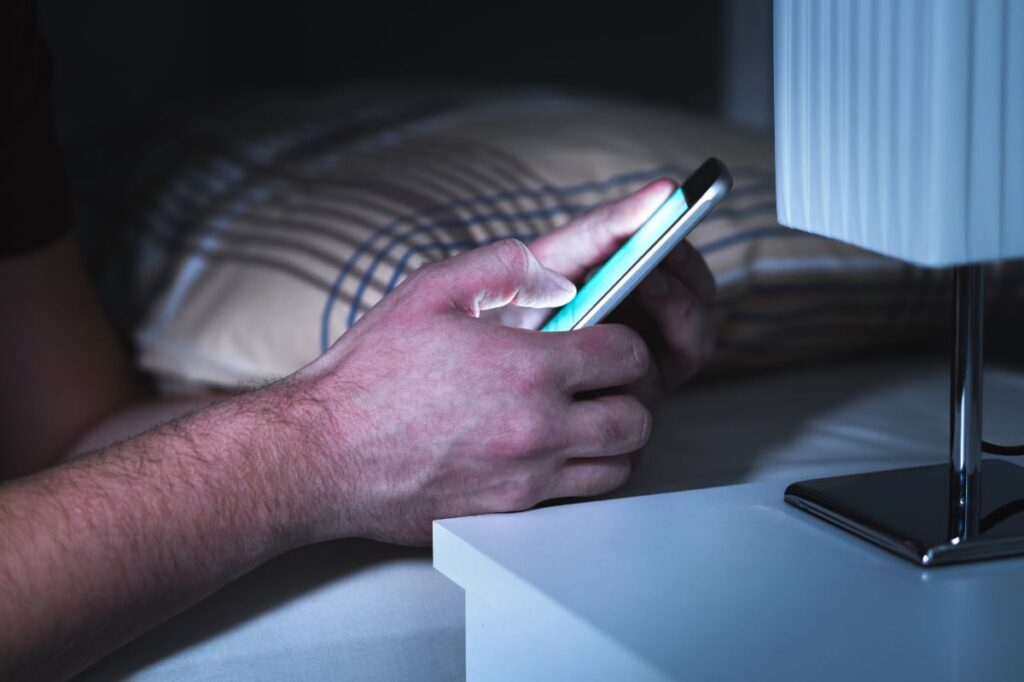
It’s 2023. The watch on my wrist has more computing power than the desktop PCs that I used to write up my thesis in university 20 odd years ago. I’ve got more storage space on my wrist today than I had on my full size desktop 20 odd years ago. Actually I’ll go further. The watch on my wrist has a faster processor and more RAM than the first server I got back in 2001.
I’m reachable pretty much 24 hours a day, 365 days of the year almost anywhere on the planet. I can’t remember the last time I was completely “off grid”, possibly when I was in Cuba around a decade ago? I used to be able to “escape” when I was on a long flight, but now with wifi available on most of those that refuge is also gone. Even if you’re in the depths of the countryside (anywhere in the world) you’ll either have a mobile signal or at least access to wifi of some kind.
Possibly the only time that you won’t be reachable is when you’re at an event where mobile phones are banned and they’ve forced you to put your phone inside one of those bags that blocks all signal. (There’s a very strong argument in favour of making more events mobile free and forcing people to actually live in the moment and not spend their entire time with their heads in their mobile device – and yes I’m as guilty of doing this as anyone else)
And it’s no longer just phone calls and texts.
No.
We’ve got email and a dizzying range of text messaging apps and services. Most of my friends, colleagues and family use WhatsApp. Another cohort are on Signal, while a very small number use Telegram. Then there’s Skype, which I used to use for calls with friends overseas, but these days I use mostly as another messaging app. Then there’s Facebook messenger and of course iMessage and SMS. And that’s without even talking about the various social media networks and services that also support various forms of messaging. And did I forget Slack?
It can be completely overwhelming.
And also it can create a weird tension.
In a world where you can message people instantly you can come to expect an almost instant response. Many of the apps and services show users when their messages have been successfully sent and some go further and tell you when they’ve been read (or at least displayed) by your interlocutor. So when they don’t reply quickly enough (which is completely subjective and more than a little ridiculous) people start worrying.
Is something up?
Are they offended?
Are they ghosting me?
The reality is usually much more banal.
While you might think your message is super important, you are not the centre of the universe. Other people have lives too. They have jobs, they have distractions and and not everybody lives with their phone beside them all day. I often get messages from people when I’m doing something. I see them, skim them and then forget to reply for ages, as I’m busy with something else. Or maybe I simply can’t respond right away. Or maybe I heard a “bing” on my phone and then couldn’t find which of the myriad of apps was the source of the notification. I’ll reply when I get a chance.

I’m old enough to remember a time when it wasn’t like this.
As a teen if I wanted to arrange to meet up with friends we’d have to either make arrangements in person or by phoning them up to work out the details. There were no mobile phones. Nobody had computers and even if they did they weren’t connected to the internet. Yes, it did exist, but the world wide web didn’t.
Letters. I used to write them. Again, as a teen, I recall writing many many letters to the girl I was dating at the time. I’ve no idea what I put in those letters. And I doubt she kept them.
When I was living in staff housing at Disney there were a few communal phones between the buildings, so people would ring them and hopefully somebody would come to find you if a friend or relative rang looking for you.
Years later I ended up bouncing between Ireland and Spain and my girlfriend at the time was Spanish. (Booking flights back then involved going into a travel agency and you’d end up with physical tickets that were often like booklets, Back then it was normal, but it seems odd now looking back)
Making phone calls to her was a bit complicated. The cost of an international phone call was prohibitive, so I used to have to buy international calling cards which let me make cheaper calls to Spain. While I was studying in Limerick I used to cycle down to a phone box a km or so away from the house I was living in so I’d have a bit of privacy, plus monopolising the only phone in the house wouldn’t have made me too popular!
Remember getting your first mobile phone? I do. It changed my life. Prior to getting a mobile phone life was both simpler and more complicated. For the first time I had a phone in my pocket all the time and I no longer had to find a phone box or deal with calling cards or spare change.
Even when I was living in the same city as my girlfriend we had no way to be in “constant” contact like you can today. We’d arrange to meet up somewhere at a specific time in a specific place. If you were running late you’d no way of letting the other person know, so you had to rely on them being patient enough to hang around until you turned up and vice-versa.
Things were simpler.
If you wanted to talk to a friend you had to either go and meet them or pick up a phone and talk to them. If you wanted to send them a message without meeting them or ringing them then your only option was to resort to sending a card or a letter via the postal service.
The pace of life was that bit slower.
Maybe I’m just feeling nostalgic, but I do wonder at times if some of us have become so addicted to the gadgets and gizmos that we’ve filled our lives with that we’ve almost forgotten to actually live our lives. I recall quite vividly the day I got a mobile phone that had email on it. I remember thinking that I’d gained freedom from my desk, but now I’m not so sure.
And yes I realise that for somebody who works in technology and has done so for over 20 years this might seem like an odd train of thought. Maybe it is.
So what am I going to do about it?
I’m not 100% sure, but I can see myself joining the ranks of those who’ve deleted some social media apps from their phones. The problem is which ones. But that’s another matter entirely.







My father refused to get a cell phone back in the ‘90s because, as he said, he didn’t want to be found.
There are things I like and things I don’t like. I like being able to call 911 wherever I am, having maps that tell me where I am, and tumblr. I don’t love endless notifications. It’s a trade off. My work is international so it makes sense for people to be able to contact me any time of the day—theirs or mine—but sometimes it’s nice to be unfindable. As, apparently, daddy knew.
Us, I still can’t get Slack notifications to work on my phone (but they work on my iPad!).
I’m taking a tenday off in August and already worrying about people not being able to contact me but am also explicitly planning to leave my work computer at home.
As everything is—it’s a trade-off.
Reg
Being able to take time off and not worry about work is a good idea. Or so I’m told!
My main thing is that while I’d like to be able to disable or remove some things I’ve no idea how to even begin to approach it.
But maybe the simplest solution is to just put the phone down!
Michele